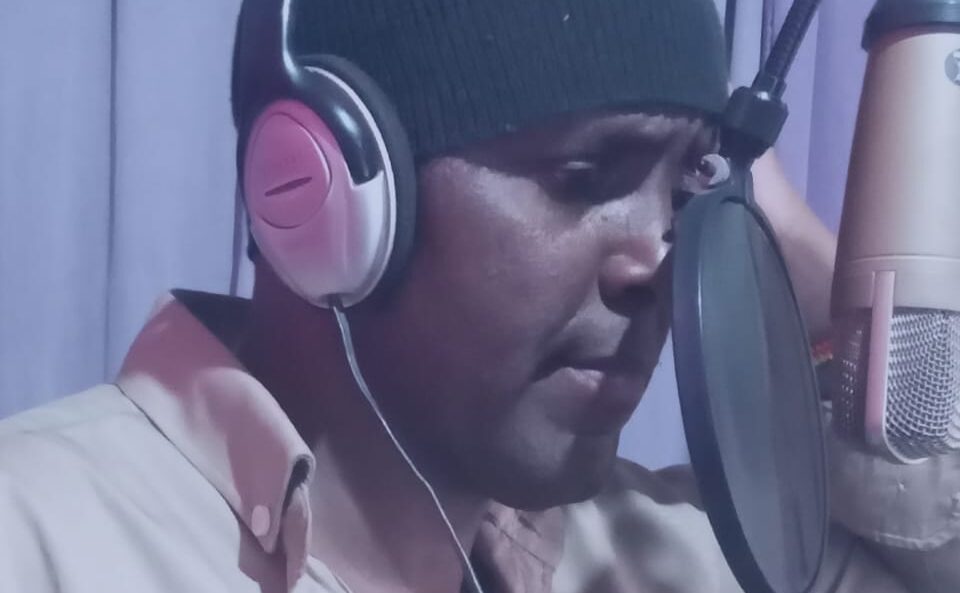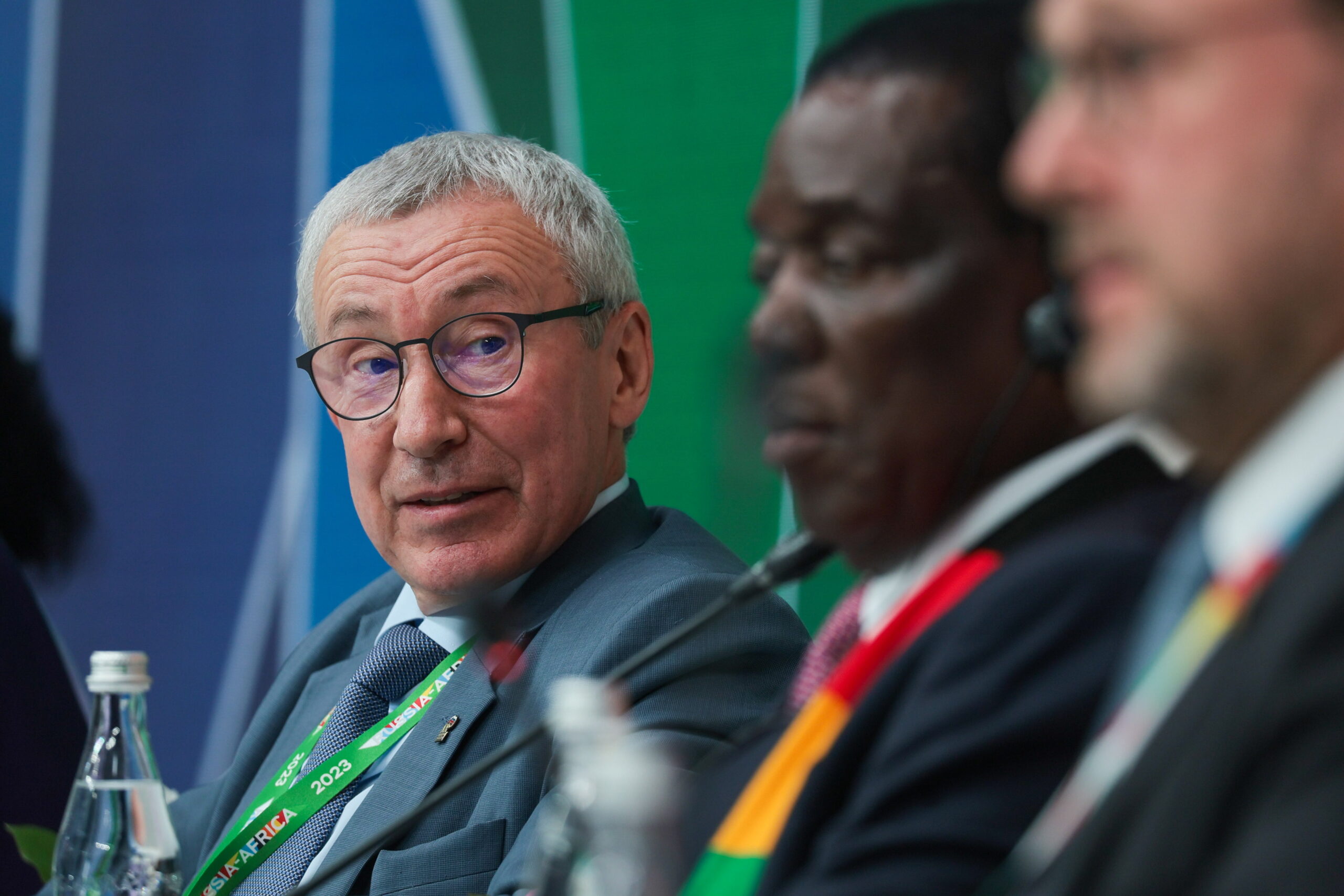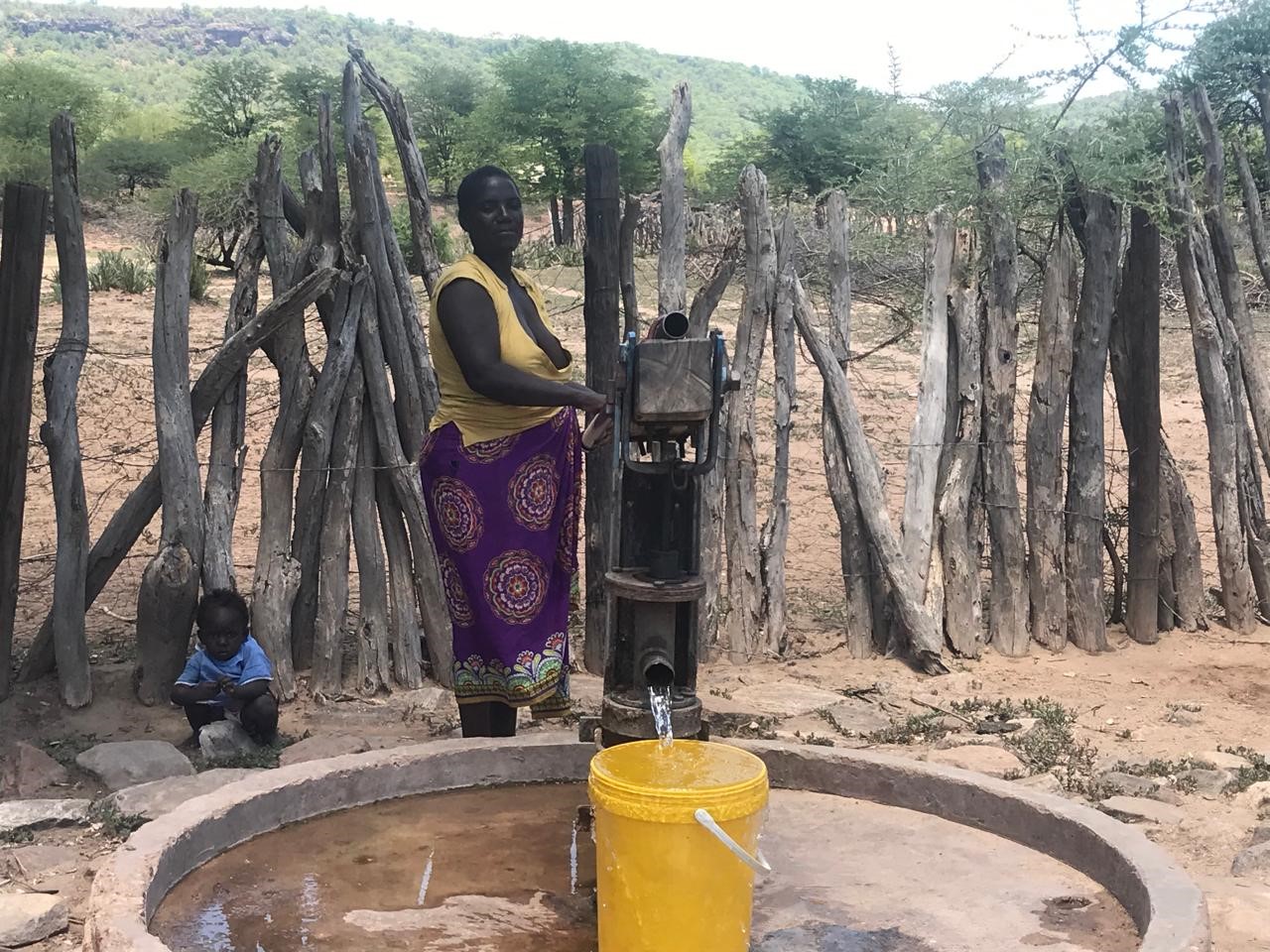
The Crooning Writer, Tee Ngugi
by Moses Magadza
In Tee Ngugi’s short story, Martha’s Garden, published in Issue Nine of the St. Petersburg Review, the tragic eponymous heroine sings a haunting song under the moonlight, against the backdrop of a swishing and slapping sea:

“Then Martha took up the guitar and strummed softly. Then she picked the strings. Each single note, crystal clear, struck a poignant chord in our hearts. Her voice dipped and rose, and wailed and pleaded, while the sea swooshed over pebbles on the shoreline.”
In two of Tee Ngugi’s songs, Moonlight Love and Hopeless Hope, there is the evocation of nature, and quietness, and poignant aloneness. In Moonlight Love, the moon rises brightly from within the sea. The palm trees shiver in the wind. The sea gulls fly effortlessly in the sky. A woman walks her lover to the sea at night.
Intermittently, Tee Ngugi sings emotionally into the microphone. Immersed in the darkness, soothed by the waves lapping at the shore, and uplifted by the emerging moon, he is seized by a vision of love.
In the morning, entranced by the night’s vision, the couple withdraws into their home to explore their love sensorially and transcendentally. The lovers sleep under the moonlight and dance in the summer rain.
The song suggests that love does not require material underpinnings. In fact, the song suggests that love is more intimate and meaningful when experienced in the conditions of pristine nature.
In the short story, Mystery of Missing Girl, in Tee’s short story collection, Seasons of Love and Despair, the narrator watches his love interest from behind a fence. Aware or unaware of the eyes behind the fence, she walks about in the yard as if she were floating on the night.
When she sings, it is as if the song is part of the night. Beauty, love and song are woven into the fabric of the moon-drenched night.
It seems, according to Ngugi, nature has healing and redemptive power. In the song Utuku Muraya (long night), sung in Kikuyu, Tee’s mother tongue, he urges people who have suffered loss of a romantic relationship or death of a loved one to walk in the meadows, swim in the river and listen to birds singing. So that their wounded spirits, he sings, can be healed.
In Tee’s other song, Hopeless Hope, a rejected lover still pines for what he has lost. Even though he knows she will not change her mind, he holds vigil by the ferry; appealing to her to remember the love they shared, and reverse her decision.
The song ends with the refrain: “I’m living on hopeless hope”. The accompanying video is shot in Mombasa against the backdrop of the Indian Ocean.

The waves weave in and out of the wailing voice of the love-stricken singer. The beach is far and wide-reaching. The wind flaps through the singer’s shirt. The girl appears in a broad hat and as she comes into the ferry, her round and inviting thighs are exposed. She drips with femininity.
So in Tee’s artistic world, life, love and pristine nature share a mutually-revelatory relationship. Life finds its truest expression through love, and in turn, life and love find their truest expression in nature.
In his short stories, the characters, immersed in nature, sing songs or recite poetry to express nuanced emotions that cannot be expressed in prose. So song, in the stories, is a narrative device. And in his songs, nature throws the emotions of the characters in sharp relief.
In a sense, the songs and accompanying videos, just as in the stories, employ nature as a narrative device.
There is also intertextuality between the stories and songs. Moonlight Love makes reference to literary text when the singer evokes the love between Romeo and Juliet.
In Utuku Muraya, there are sayings from Kikuyu oral tradition and reference to a historical figure, Dedan Kimathi, and the ‘Iregi’ generation that rebelled against the British.
In Light from the Chapel, published in Kikwetu, an online literary journal, a distraught girl runs in the rain, seeking salvation at the chapel. She is soaking wet from the rain, but the solitude of the night soothes her troubled spirit. In the quietness, she hums a song and listens as it meshes with the darkness around her.
In this short story, Tee writes about the girl, Noni, who grows from innocence to experience in a religious set-up. When she is in high school, she naively believes in the purity of priests, nuns and all religious people.
Noni thinks that sin is a far away thing for all people who follow the cross. Then suddenly she catches the local church priest in a very compromising position! Noni is also starting to realise that: “There is a mysterious space where pure sexual and spiritual experiences connect…”
She discovers that spiritual ecstasy appears to be in tandem with coital energy. Later, at university, now a more “reasonable” Marxist feminist, Noni appears to learn that reality is universal and we only give it different names depending on where we stand and that Christianity, Marxism and feminism tend to coalesce in their findings about mankind.
In the essay, We are Orphans of our Dreams, published in Brittle Paper, another online literary journal, Ngugi narrates the arrest and detention of his father, Ngugi wa Thiongo, by the Kenyan government. His mother wakes him up and they stand together, looking through the window as his father is ferried away in one of the numerous police cars.
Tee writes: “We stood together in the silence of the night, peering out of the window at shadows cast by the moonlight.” In real life, too, emotional state is thrown into sharp relief by nature.
Tee says he is about to hit the studio again, this time to record his first protest song. Will he again employ nature as a narrative device? Will we see intertextuality in the upcoming song? We will have to wait and see.
Tee Ngugi, the eldest of Ngugi’s offspring is a writer, columnist and singer-songwriter of note. His short fiction, essays and commentaries have appeared in several publications including New Orleans Review, St Petersburg Review, Kwani, Brittle Paper, Timbuktu, New Black Magazine, Jahazi, and The East African, among others.
A graduate of Yale, Tee has worked in the academic and NGO sectors in Zimbabwe, Namibia and Kenya. In Namibia he worked as a lecturer in media and communication at the Polytechnic of Namibia, now University of Science and Technology.
He served also, as a columnist for The Namibian and The Southern Times newspapers. He lives in Nairobi, Kenya.
-Moses Magadza (PhD) is a Zimbabwean multiple award-winning journalist, communications specialist, guitarist and songwriter. He holds a Doctor of Philosophy degree in Media Studies and has research interests in agenda setting, media framing, the public sphere and social justice.









